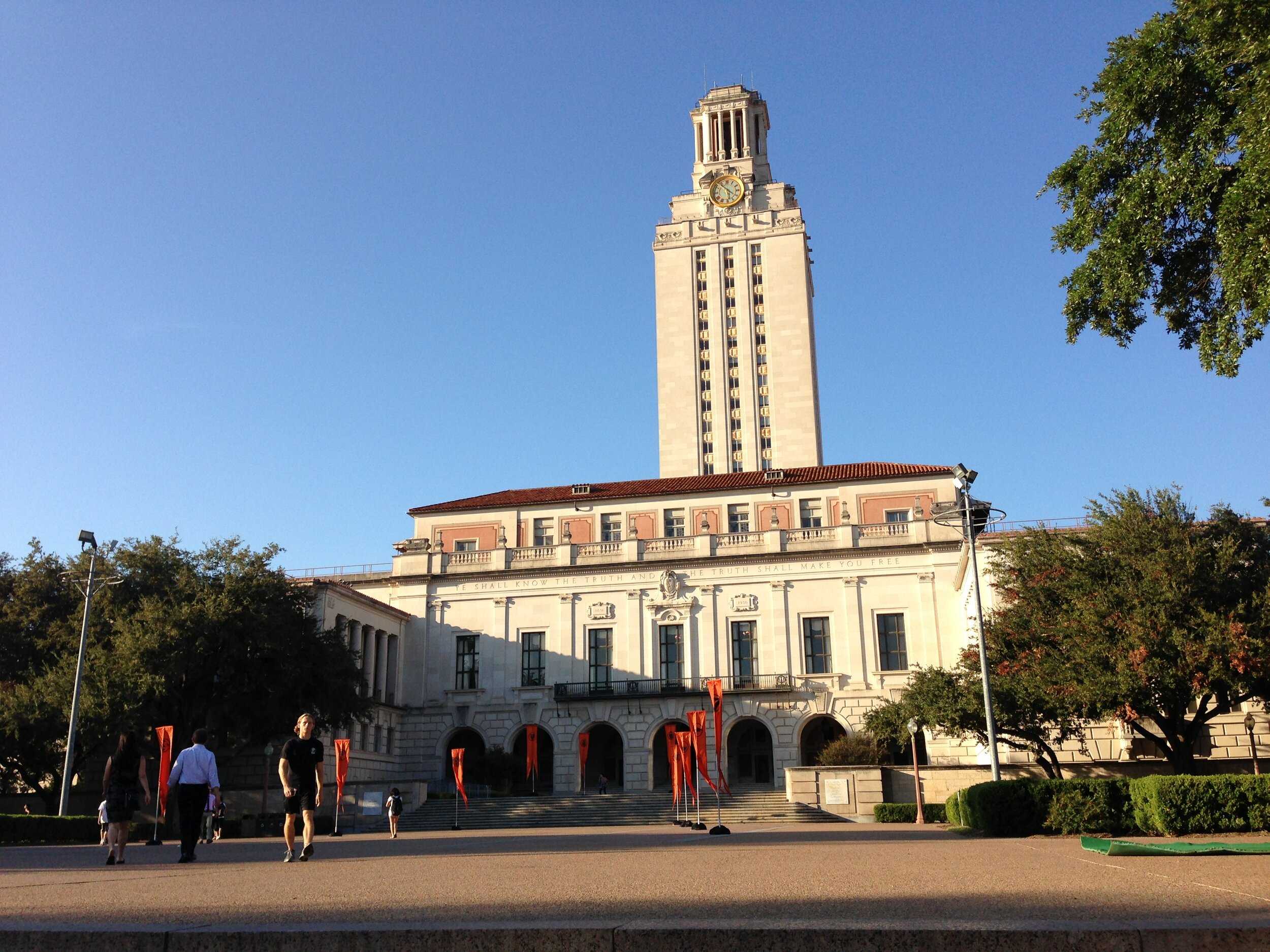Story by Bella Chamoun-Ko // @bellachamounko // pronouns: she/her
Photo courtesy of Wikimedia – https://upload.wikimedia.org/wikipedia/commons/1/1f/UT_Tower_-_Main_Building.JPG
I remember the day that I got my letter from the University of Texas at Austin.
Just weeks away from high school graduation, my mom called me downstairs to open a burnt orange envelope. Anticipating an acceptance, my heart dropped when I read the words, “We regret to inform you…”
After spending my freshman year dreaming of getting into UT.
After my sophomore year of being blindsided by a depression diagnosis.
After my junior year of having to accept that my grades were nowhere near where I imagined they would be.
After my senior year of dealing with a competitive schooling program, I hung onto the idea of escaping to UT.
That all changed in one day.
Suddenly, I was smothered in a pile of blankets, covered in snotty tissues, and sleeping on a tear-stained pillow.
It’s hard to believe that it’s been about a year since that day, and now I’m here, in the McCombs School of Business. If there is anything I’ve learned from that period of time, it’s this:
Don’t settle for less.
Currently, I’m a sophomore. But as a freshman, I was at Southern Methodist University, where I narrowly missed my acceptance. Obviously, SMU was not the university I had dreamed of attending. But it was the right school, with a good business program. I know that not a lot of kids have the resources to attend a private university, so there was no way I couldn’t be grateful. I had to be, I had to be. But deep down: I wasn’t.
The first day I moved into SMU, I told myself I would shed the person I was in high school — timid, unsure, without confidence – and transform myself into someone that I wanted to be: popular. No, not your cliché Regina George popular, but someone with a legacy to leave behind. Now that might be a very idealistic way of imagining your time at a university, but I knew that I wanted to make a difference. I especially wanted to prove to myself that I was capable of doing so. So then you ask: well what does it mean to be a capable person? I associate being capable with success, and I grew up believing that success is defined by your rank, GPA, and extracurriculars — it’s about being impressive.
I believe we call this grind culture: pushing yourself over-the-edge academically to prove you are worthy of competing against the elites of society, or the rich. Because money is stability, right?
Wrong.
I tried to over-compensate for having failed at making it into UT with getting good grades. When I got that rejection letter, my whole world came crashing down before my eyes. So my mentality shifted to what it was in high school, where I constantly felt the pressure to prove myself as someone who wasn’t sub-par.
The more I allowed myself to live with that kind of stress, the more I began to think that it was normal. That I was supposed to convince myself to be grateful for attending such a prestigious school and that the only way I could show my gratitude was to succeed academically. More so, I tried to make myself a more robust human who could handle situations that took a wrong turn. Even in high school, I lived with the mask of a “cheerleader,” trying to be optimistic even when I knew the reality of the situation.
This is how it was going to be, and I would just need to learn to accept it.
I wish I could have hugged myself in the moments that I would lock myself in my dorm room until 4 a.m. studying for a test that wouldn’t happen for another month.
I was absolutely miserable where I was, and the more I accepted that it was normal to feel the pressure to be someone worthwhile, or deserving of success: the more I lost my mind. I mean, I lost myself the moment I said that I was happy at the rate I was going, studying ninety-percent of the time and seeing friends at a bare minimum of ten percent of the time.
I lost who I was when I denied myself of wanting something great and also forced myself to accept that I would forever be stuck in this vicious cycle of academic success.
My breath of fresh air? The moment I abandoned this cruel mindset and decided to ask for something I actually wanted, for UT to accept me.
We like to trick ourselves into believing that being content is the same as being comfortable when the two concepts are nowhere near the same.
It took me far too long to arrive at this conclusion. I was finally able to admit that I was never content with where I was in the first place, I had just grown comfortable with the feeling of settling for less.












































